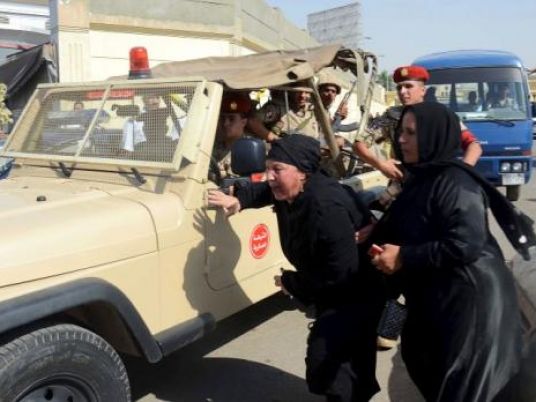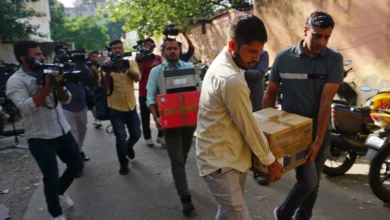
Egypt is drafting a law tightening restrictions on media coverage of the armed forces, government and judicial sources said, alarming journalists who believe this would end three years of relative press freedom.
One source played down any threat to freedoms won after the 2011 overthrow of autocrat Hosni Mubarak, saying legislation under discussion would restrict only reporting that endangers national security while Egypt fights Islamist militants.
But journalists fear that if implemented, it would end general coverage of the military which as the main pillar of the Egyptian state wields major political and economic influence.
A law in effect for decades already bans reporting on the military without permission, but a text of the new draft leaked to local media would increase curbs and penalties.
Before Mubarak's fall, Egyptian media ran only official statements on the army, but after the uprising the ban was not fully enforced and criticism of the military became widespread.
The draft has not been officially released, but a text that appeared in the pro-government El-Watan newspaper last week suggests it will ban publication of "any news, information, statistics, statements or documents related to the armed forces, their formations, movements… operations or plans" without written permission from army general command.
Anyone who breaks the law would face up to five years in jail and a fine of LE10,000 to LE50,000 (US$1,400 to $7,000), rising to prison without parole and a fine of LE100,000 to LE200,000 during war or emergency rule.
That wording would hamstring reporters in a country where the military has provided most presidents since Gamal Abdel Nasser and his Free Officers overthrew the monarchy in 1952. The army also controls businesses from bottled water to washing machine makers, and supervises infrastructure projects including an expansion of the Suez Canal.
The government has not publicly commented on the leaked draft but three sources said the law was being discussed by Egypt's Council of State, a judicial body that advises the government and drafts legislation.
"I see the law as very bad and an assault on press freedom," said Amer Tammam, a journalist at the state-owned Al-Akhbar newspaper. "The defence ministry carries out economic projects … If I publish a report on corruption in any of these projects do I get jailed for five years? If I publish a report about a fight at a petrol station that belongs to the army do I also go to jail?"
Military movements
The source with knowledge of the matter said the changes had been prompted by violence in the Sinai Peninsula where the army is battling militants.
"First, it is a draft. It is still being discussed by the Council of State so no one knows what it will say," said the source, declining to be named as he was not authorised to speak.
"But the aim is not to ban anyone from writing about the military in general. Nowhere in the world are journalists allowed to write about military movements or operations without checking that it does not undermine security or expose troops."
Journalists worry that what harms national security is open to interpretation and the law will expose them to arrest and military trial if they misjudge the red lines. They say it gives the army scope to eliminate criticism.
"The draft law uses loose phrasing… and will… open the door to fear among journalists that they will be pursued by the military," said another journalist, declining to be named.
The 2011 revolt led to Egypt's first democratic elections that saw Islamist Mohamed Mursi become president. As army chief, Abdel Fattah al-Sisi overthrew Mursi last year after protests against his rule. He went on to win a presidential vote in May.
Since Sisi came to power, Egyptian media have largely reverted to the self-censorship they practised before 2011.
Three journalists from Qatari-owned Al Jazeera television were jailed for seven to 10 years in June for aiding a "terrorist" group in a case that was condemned by Western governments that give military and political support to Cairo.
After an attack that killed 33 security personnel in Sinai last month, Egyptian newspaper editors issued a statement promising not to publish reports that would undermine the army.



